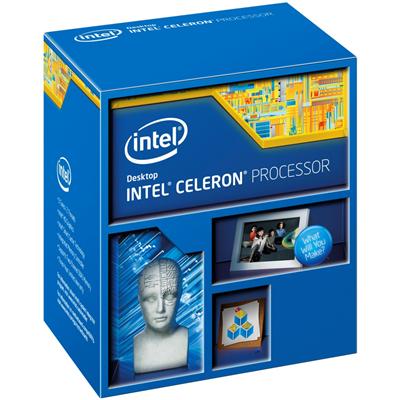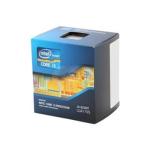Description
Key Features
- Specification
Processor Family Intel Celeron
Processor Number G1820
Processor Size 22nm
Processor Interface 1150
Number of Cores 2
Number of Threads 2
Clock Speed 2.7GHz
Turbo Speed
Cache 2 Mb
Bus/Core Ratio 33
Bus Type 5Ts
Thermal Design Power Yes
Cache
L1 2 x 32 KB instruction caches
2 x 32 KB data caches
L2 2 x 256KB
L3 2MB
Intergrated Graphics:
Graphics Chipset Intel HD Graphics
Graphics Cores
Graphics Base Clock 350MHz
Graphics Max Dynamic Frequency 1.05GHz
Max Memory 1.7 GB
Voltage –
0.85 – 1.5
Retail Package
Yes
Special Features
Intel Virtualization Technology (VT-x)
intel 64
Idle States
Enhanced Intel SpeedStep Technology
Thermal Monitoring Technologies
Secure Key
More Information
Intel Virtualization Technology (VT-x)
Intel Virtualization Technology (VT-x) allows one hardware platform to function as multiple “virtual” platforms. It offers improved manageability by limiting downtime and maintaining productivity by isolating computing activities into separate partitions.
Intel VT-x with Extended Page Tables (EPT)
Intel VT-x with Extended Page Tables (EPT), also known as Second Level Address Translation (SLAT), provides acceleration for memory intensive virtualized applications. Extended Page Tables in Intel Virtualization Technology platforms reduces the memory and power overhead costs and increases battery life through hardware optimization of page table management.
Intel 64
Intel 64 architecture delivers 64-bit computing on server, workstation, desktop and mobile platforms when combined with supporting software. Intel 64 architecture improves performance by allowing systems to address more than 4 GB of both virtual and physical memory.
Idle States
Idle States (C-states) are used to save power when the processor is idle. C0 is the operational state, meaning that the CPU is doing useful work. C1 is the first idle state, C2 the second, and so on, where more power saving actions are taken for numerically higher C-states.




